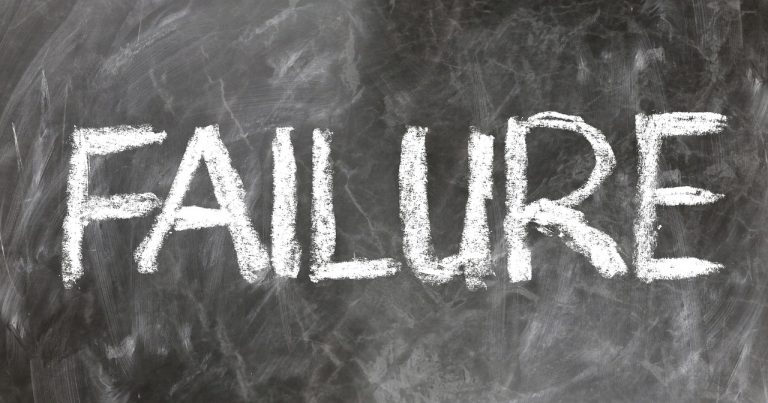Good morning to 7,776 e-commerce executives. Today’s topic is something every entrepreneur is all-too-familiar with: failure.
Failures sting, but for the most successful entrepreneurs, they are also the best teachers. In this edition, we spotlight the stories of four business leaders who faced failure head-on, only to rise stronger and more resilient. Let’s explore their journeys, learn the key lessons, and discover what you can apply to your own entrepreneurial path.
Samuel Davis of London Gardeners: Growing Slow to Grow Strong
Samuel Davis, CEO of London Gardeners, once had a sustainable home goods store that, unfortunately, didn’t last long. The downfall? Scaling too quickly without understanding the market. Samuel and his team spent too much on inventory before collecting meaningful customer feedback or analyzing e-commerce data.
Lesson Learned: Start small and grow based on customer demand. “Failure is part of the journey. It does not define you; it refines you,” says Samuel. By applying the lessons from his past venture, Samuel now leans on Shopify analytics to make data-driven decisions and grow sustainably. London Gardeners is thriving, with a 23% growth in traffic thanks to community involvement and careful scaling.
Practical Takeaway: Listen to your customers and use analytics to guide your decisions. Failures are a refining tool—use them to build something stronger.
Suggested tool: Boardroom’s own AI-driven dashboard simplifies and amplifies Shopify’s analytics to deliver practical insights in an easy to understand way. Head here to learn more.
Mark Agnew of Eyeglasses.com: Learning From the Customer
Before Mark Agnew built Eyeglasses.com into a leader in the eyewear industry, he launched a different e-commerce venture that tanked due to poor customer service. His fatal mistake? Underestimating the power of customer relationships in a digital marketplace.
Lesson Learned: “The route to success is non-linear,” says Mark. He took this experience to heart and now focuses on consumer advocacy and transparency. This strategy, coupled with virtual try-on technology, turned Eyeglasses.com into a thriving platform with 350+ fashion brands.
Practical Takeaway: Customer service isn’t optional—it’s critical. Failure often reveals what’s most important for long-term success.
Forrest Webber of The Trade Table: Logistics Matter
Forrest Webber, now the owner of The Trade Table, wasn’t always riding the waves of success. His first venture, called Bonded Brothers LLC, struggled due to inefficient logistics and poor digital marketing. Low online visibility and an inability to streamline deliveries meant his business couldn’t take off.
Lesson Learned: Forrest overhauled his strategy at The Trade Table by focusing on digital marketing and optimizing logistics. His new approach paid off, as better delivery systems and marketing tactics led to a surge in customer satisfaction and revenue.
Practical Takeaway: Pay attention to the operational side of your business. Marketing brings in customers, but logistics and delivery keep them coming back. Focus on every aspect of the customer’s journey to ensure a seamless experience.
Eric Koenig of SiteHike: Validating the Market Before Scaling
Eric Koenig’s eco-friendly stationery company, Twigs Paper, didn’t make it. The reason? He over-invested in product development without first validating his market.
Lesson Learned: “Start small, build a minimum viable product, and listen to your customers,” advises Eric. For his next venture, SiteHike, he began by offering a basic service and scaled only after strong customer feedback and sales. His lean approach has led to a profitable and rapidly growing agency within six months.
Practical Takeaway: Don’t scale prematurely. Test the market, refine your offering, and pivot based on what works. Focus on making your very first customers as happy as possible and ask them for feedback regularly.
Final Thoughts: Failure is a Detour, Not a Dead End
From scaling too quickly to underestimating customer service or failing to streamline operations, these entrepreneurs show that failure isn’t a dead end—it’s a stepping stone. As Mark Agnew wisely said, “Failure is a detour sign toward a better path.” So, to all the budding entrepreneurs out there: Take your lessons, dust yourself off, and keep moving forward.
The road to success is paved with setbacks, but each one brings you closer to achieving your goals.


